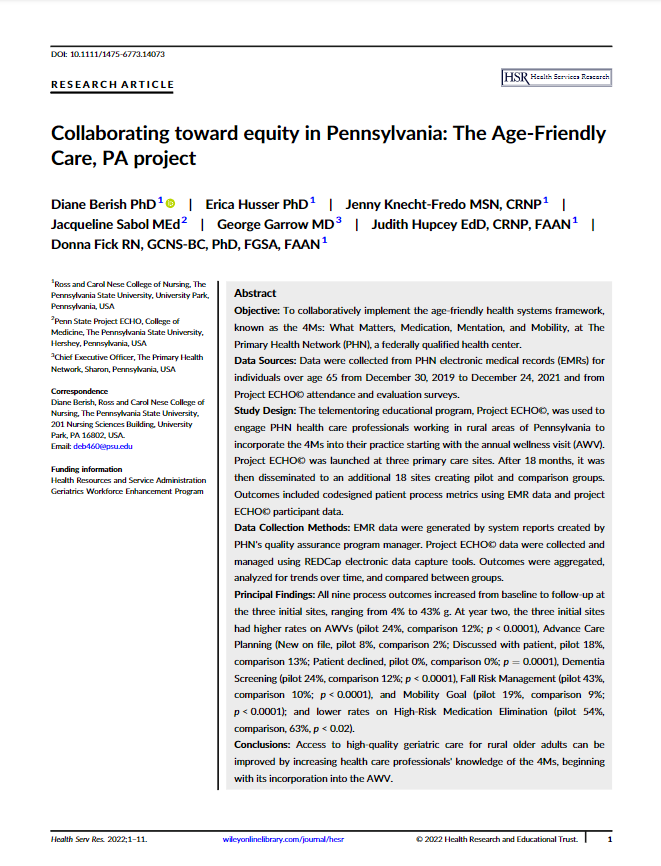Headline
Implementation of the Age-Friendly Health Systems approach within a Federally Qualified Health Center can improve patient care process outcomes and improve access to care for rural older adults.
Context
The Age-Friendly Health Systems framework is an evidence- and value-based approach to improve care delivery for older adults by focusing on the 4Ms: What Matters, Medication, Mentation, and Mobility. The Primary Health Network, the largest federally qualified health center in Pennsylvania, collaboratively implemented this framework using Project ECHO, which is a model for telemonitoring to improve the capacity of primary care providers to support individuals with complex needs in their communities. This study shares results from a quality improvement project across multiple sites piloting this model using patient care process outcomes codesigned by providers and community partners.
Findings
All nine process outcomes increased at the pilot sites, including significantly higher levels on metrics such as annual wellness visits, advance care planning, fall risk management, and mobility goals. The annual wellness visit was found to be an effective way to introduce the Age-Friendly Health Systems framework to staff and to older adults. The Project ECHO platform effectively trained clinicians and staff in rural environments in this model.
Takeaways
Providers can apply these findings for future efforts to design and implement adoption of the Age-Friendly Health Systems framework in federally qualified health centers, which can improve access to and quality of care for older adults.

